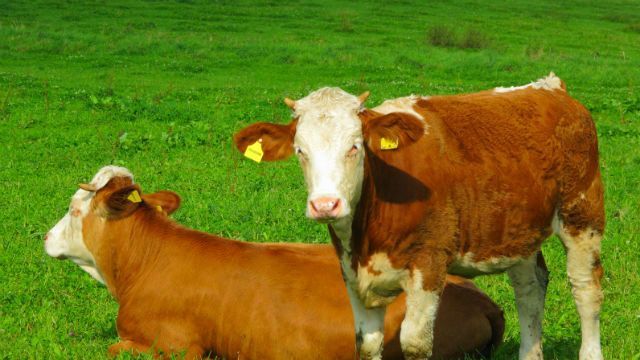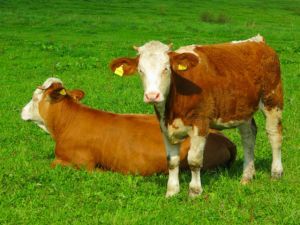
If the popular euphemism ‘you are what you eat’ applies, then it also applies to the food eaten by the food we eat. When we choose fruits and vegetables that are sprayed with pesticides, those chemicals end up in our bodies.
Similarly, if the meat we consume is fed an unhealthy diet and chemical additives, the detriments that diet provides to those animals will in turn transfer to us.
After reviewing 400 publications comparing organic and commercially-grown crops, the United Kingdom’s Soil Association Certification Ltd. concluded that phytonutrients, minerals and vitamin C were more abundant in organic produce. Growing in pesticide-free soil and being allowed to mature naturally preserved the nutrients in these crops, as opposed to the nutrient depletion found in commercially-grown varieties.
A prime example of what our food is fed directly influencing our health is found in comparing the differences between commercially-raised (grain-fed) and organic, grass-fed beef. Grain-fed cattle is raised in Concentrated Animal Feeding Operations (CAFOs), where they are confined to tiny areas, unable to move around and do not see the light of day.
These cattle are fed primarily corn, which is usually genetically modified, and is itself grown with the abundant use of fertilizers and pesticides. Other grains, and sometimes even candy and garbage, has been discovered in their feed. A cow’s body is not able to properly metabolize corn, and as a result they are very susceptible to bacteria, parasites and illnesses. To offset this, the cattle are fed antibiotics on a frequent – sometime daily – basis.
Contrastingly, organically raised, grass-fed (aka pastured) cattle are allowed to roam around and eat grass – their natural diet. According to Mayo Clinic cardiologist Dr. Martha Grogan, “grass-fed beef may have some heart-health benefits that other types of beef don’t have.”
Some of these benefits include higher amounts of omega-3 fatty acids and higher levels of conjugated linoleic acid (CLA), which is linked to reduced risk of heart disease and certain cancers. Grass-fed meat is also higher in antioxidants and micronutrients, such as vitamins A and E, and iron, potassium and zinc.
When shopping for grass-fed meats, it is important to note that this label alone does not prohibit antibiotic use in the raising of the meat. According to the Natural Resources Defense Council (NRDC), the label “grass-fed” or “pastured” should be accompanied by a “USDA Organic” certification to ensure that the animals both dined on grasses and were not fed antibiotics.
 So, if you do not wish to feast on antibiotics, GMOs, pesticides and other various non-appetizing miscellany from down the food chain, choose organic fruits and vegetables, and organic, grass-fed meats. Eating organic is the best possible way to ensure you receive the optimal nutrition from your food, and stay away from any dangerous byproducts that come with supporting mass-produced food.
So, if you do not wish to feast on antibiotics, GMOs, pesticides and other various non-appetizing miscellany from down the food chain, choose organic fruits and vegetables, and organic, grass-fed meats. Eating organic is the best possible way to ensure you receive the optimal nutrition from your food, and stay away from any dangerous byproducts that come with supporting mass-produced food.
-The Alternative Daily
Sources:
http://www.care2.com/causes/grass-vs-grain-cows-are-what-they-eat.html
http://www.nrdc.org/living/labels/food.asp
http://www.mayoclinic.com/health/grass-fed-beef/AN02053
http://www.organic.org/articles/showarticle/article-46
http://www.soilassociation.org/LinkClick.aspx?fileticket=cY8kfP3Q%2BgA%3D&%3Btabid=38

